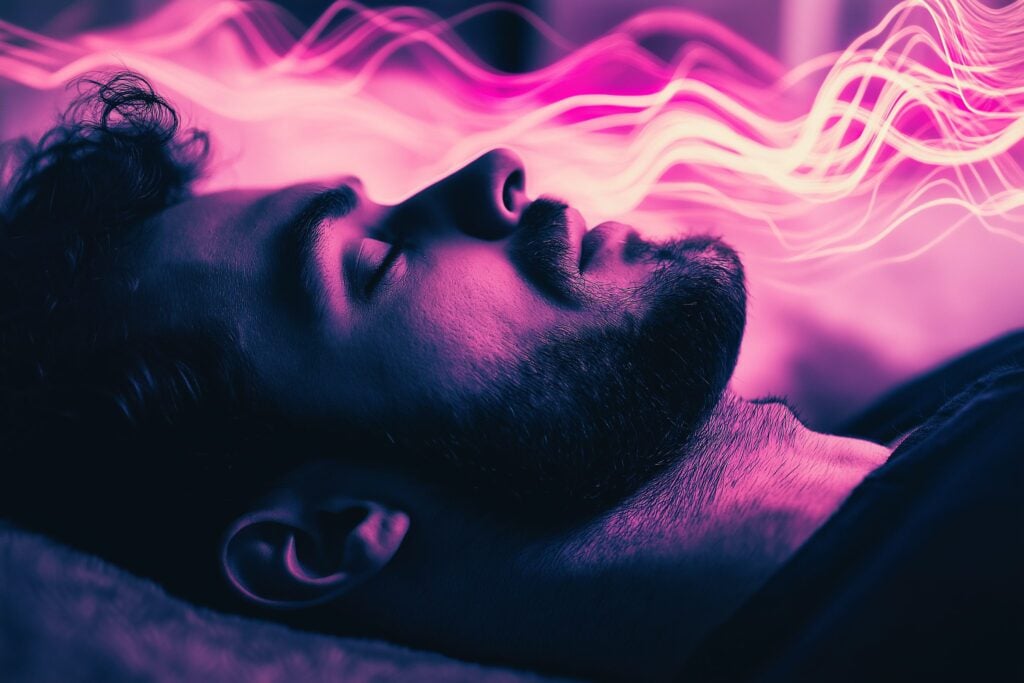
Snooze Button and Sleep Quality: What Research Says
New research indicates that hitting the snooze button may not be that bad as long as you keep snooze time less than 30 minutes.

Do you jump right out of bed in the morning when your alarm goes off or do you hit the snooze button a couple of times? Snoozing is a common sleep habit that most people engage in. Many people believe that the habit could be harmful to one’s health. Contrary to popular belief, hitting the snooze button is not that bad for you. In fact, new research suggests that it might actually be beneficial. Snoozing could help you feel more alert and less tired. Here’s what science says.
How Common Is Snoozing?
A study conducted by Stockholm University researchers and published in the Journal of Sleep Research in 2023, examined how typical it is for people to use the snooze button on their alarm clocks. The sleeping habits of 1732 people were reviewed. They found that nearly 70 percent of people in the study reported hitting the snooze button at least once. Younger participants tended to snooze more than older ones. Most people who used the snooze button fell asleep between alarms and snoozed for an average of 22 minutes. Participants who snoozed tended to be “night owls.”
This is likely because of their circadian rhythm. Night owls are more likely to be in a deeper sleep when their alarm clock rings, which makes them more likely to hit the snooze button. The most common reasons for snoozing were that participants were unable to wake up with the first alarm or that they were too tired to wake up.
Is Hitting the Snooze Button Good for You?
The latest research suggests that hitting the snooze button is not as bad as experts once thought. This habit isn’t likely to do any major damage to your sleep. Snoozing is helpful because it allows you to gently transition from sleep to wakefulness.
The Stockholm University researchers conducted a second study, in which 31 participants spent three nights in a sleep lab. Participants had no sleep disorders or issues. Researchers examined the effects of snoozing on executive function, processing speed, and memory. Participants who snoozed were alert quicker compared to those who did not. They also had better cognitive performance. In this study, snoozing did not cause any negative impacts on sleep quality nor did it result in any significant loss of overall sleep time. Study author Tina Sundelin, PhD, of Stockholm University, says “The findings indicate that there is no reason to stop snoozing in the morning if you enjoy it.” Furthermore, “It may even help those with morning drowsiness to be slightly more awake once they get up,” says Sundelin.
Another study, conducted in 2022 by researchers at the University of Notre Dame, examined the impact of snoozing on overall sleep and daytime sleepiness. This study consisted of 450 participants. Both surveys and wearable data were used to assess snoozing data. Participants who snoozed didn’t get any less sleep overall than non-snoozers. They also didn’t report feeling any more fatigued during the day compared to those who did not snooze.
How Long Should You Snooze For?
It's best to keep your total snooze time to less than 30 minutes. Thirty minutes or less of snooze time was found to be beneficial in studies. This is enough time to refresh you but not too much. While you might wake up feeling refreshed after 30 minutes or less of snoozing, research indicates that hitting the snooze button too much (40 minutes or more) doesn’t offer the same benefit.
Who Can Benefit Most From Snoozing?
If you experience sleep inertia, then you may especially benefit from hitting the snooze button. Sleep inertia happens when you feel groggy, disorientated, or drowsiness after waking up. It may last up to 60 minutes. If you spend some of that 60 minutes snoozing instead of waking up right away, that might help fight the inertia, according to sleep scientist Tina Sundelin.
Night owls are also likely to especially benefit from hitting the snooze button. People who are night owls tend to wake in a deeper stage of sleep. Snoozing allows them to more gently transition to a lighter stage of sleep.
There Are Better Ways to Wake Up
Even though snoozing isn’t harmful to your sleep, using an alarm clock that mimics the natural sunrise might be a better way to wake up. Sunrise alarm clocks awaken you to a gradual sunrise, which signals to your body that it’s time to wake up. This is an especially peaceful way to start your day. It will help you break the habit of using the snooze button for good.
When Snoozing Is a Problem
Snoozing could point to a deeper issue with your sleep. Repeatedly hitting the snooze button could indicate a sleep disorder like obstructive sleep apnea or insomnia. It could also mean that you aren’t going to bed early enough. Consider whether you continually hit the snooze button, and have any of the following symptoms:
- Chronic loud snoring
- Excessive daytime sleepiness
- Unusual breathing or gasping while you are asleep
- Frequently waking up during the night
- Difficulty falling asleep at night
- Unusual movements during sleep
- Frequent naps during the day
It’s a good idea to talk to your doctor or sleep specialist if you are experiencing any of the above issues. They can help you figure out what’s going on. Your doctor will likely ask you about your sleep habits and may refer you to a sleep specialist for further evaluation if they suspect a sleep disorder.
If you are finding that you are hitting the snooze button too much but you don’t have the above symptoms, then you’ll want to focus on good sleep habits. Make sure you get the recommended seven to nine hours of sleep a night. Put away your phone or tablet one hour before bed. Try to go to bed and wake up at the same time every day. Finally, commit to a consistent wake-up time. You can use an app like Pillow to help you with this.
FAQ
What are the downsides of habitual snoozing?
Regular snoozing can fragment sleep, making mornings more tiring. If snoozing becomes a habit, it may be masking poor sleep hygiene or underlying issues like chronic sleep deprivation. Prioritizing quality sleep can help reduce the urge to snooze.
Is snoozing more harmful if you’re already sleep-deprived?
If you’re sleep-deprived, snoozing can worsen fatigue by interrupting fragmented sleep. Instead of relying on the snooze button, improving sleep duration and consistency is more effective for reducing grogginess and boosting energy throughout the day.
Does snoozing impact cortisol levels?
The body releases cortisol naturally upon waking to help increase alertness. Research indicates that snoozing does not significantly alter this process, meaning short snooze sessions are unlikely to interfere with the body's hormonal wake-up response.
Can snoozing be beneficial for shift workers?
Shift workers often experience irregular sleep schedules, making it harder to wake up. Snoozing in short bursts may help ease the transition to wakefulness, but prioritizing consistent, high-quality sleep and using light exposure therapy can be more effective in regulating their body clock.
Does snoozing impact dreaming?
Since snoozing often occurs during REM sleep, the stage where most vivid dreams happen, it can lead to recalling dreams more clearly. However, interrupting REM sleep repeatedly with alarms may disrupt dream continuity and contribute to grogginess.
How can you wake up more easily without snoozing?
A consistent sleep schedule, exposure to natural light in the morning, and light exercise can help you wake up more easily. Avoiding caffeine and screens before bed also improves sleep quality, reducing the need to hit the snooze button.
What alternatives to snoozing can help with waking up naturally?
Using gradual light alarms, listening to calming wake-up sounds, setting a consistent sleep schedule, and placing the alarm across the room can help reduce dependence on snoozing. Morning stretching or deep breathing exercises can also improve wakefulness.

Written by
Emily Mendez
Emily Mendez is a former therapist and mental health author. She is one of the leading voices in mental health. Emily's writing has appeared in eCounseling, SonderMind, and more. Emily is frequently interviewed by Healthline, Fatherly, INSIDER, Family Circle, and other national media for her advice and expert opinion on the latest mental health topics.
Download Pillow
Get help
Press & News
Legal
Connect
X (Twitter)
Company
Copyright © Neybox Digital Ltd.



